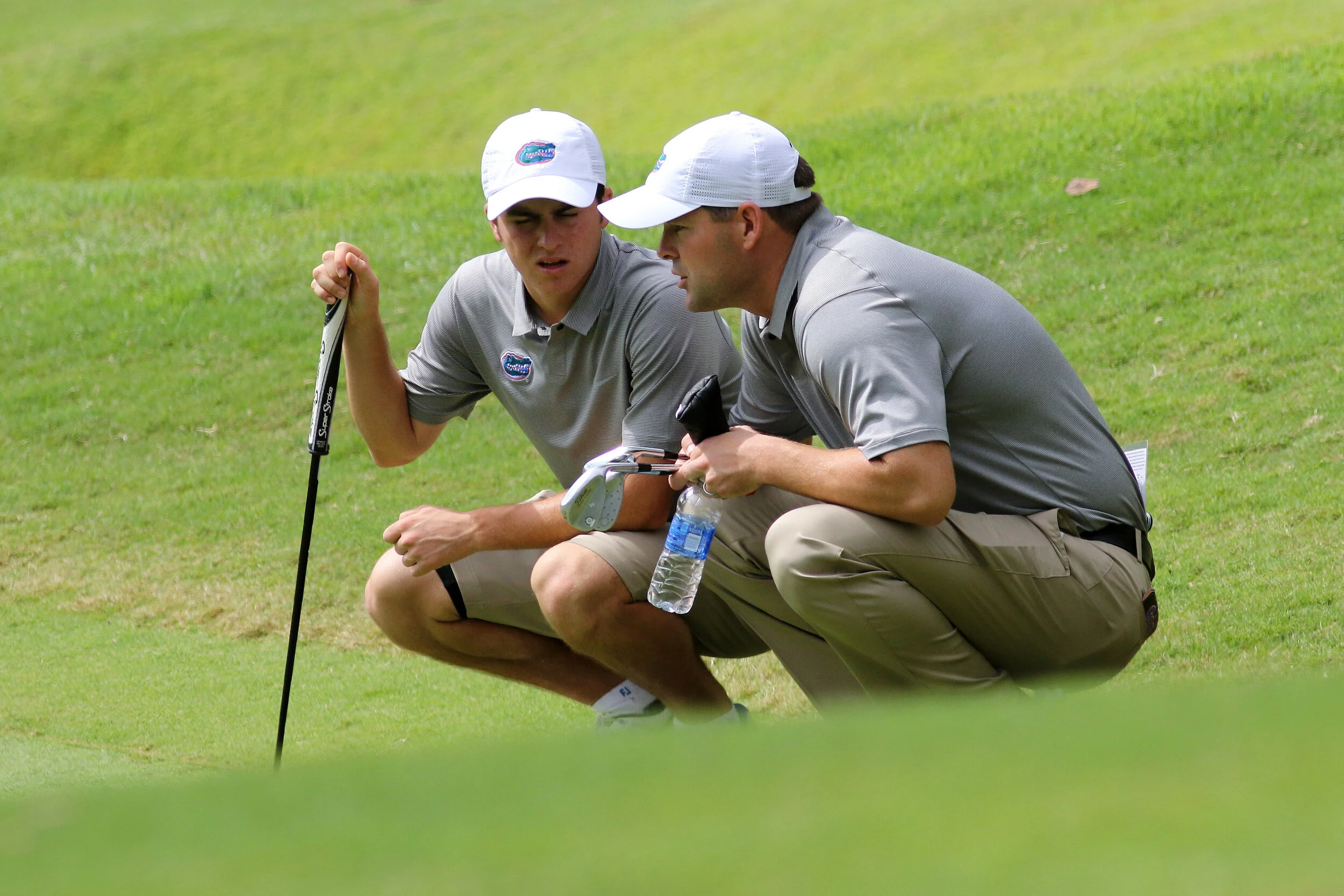Conversations
Names you ought to know, and
why you ought to know them.
“May is one of the few times when Oklahoma weather is actually enjoyable. The only real issue is that’s kinda tornado season.”
“If you’re gonna be really good, then you’ve gotta be super-consistent. Anybody can play with anybody for one day, or two days — but to string four rounds together, and to string an entire season together, you’re gonna have to be super-consistent.”
“I think it was Bill Coore that put the philosophy best: ‘You want to maintain this golf course so that it browns in, rather than greens out.’ You’re constantly working that edge where golf ends and where the site begins”
“It slowly got better. I won another one in ’18, and then ’19 hit: we won the first event out, and I thought, ‘Wow, we’re really validating that I can do this.’ From there on out, my mindset went from ‘let’s try to survive out here and make the cut’ to ‘let’s get in contention to win as many weeks as we possibly can.’”
“I think that these leagues — and this is not a PGA Tour-specific thing, because you see this in college sports — they pull back access. They don’t want you to have access. They want more control. And what that creates is more value on being funny or having the Twitter-type stuff. COVID’s only exacerbated that.”
Three years after winning one of his first college tournaments, Georgia Tech’s Tyler Strafaci has won two straight events — including Pinehurst’s North and South Amateur, which his grandfather first won 82 years earlier.
“We knew we’re never going to do this again — to kind of go off the grid for 50 days and play golf and be on our own at this beautiful resort that is typically bustling with people.“
“You have to rethink the entire operation. It’s much more difficult to plan a live event during a pandemic, there’s no question about that.“
A new King Collins design plan is creating excitement around an aging nine-hole municipal golf course in Tupelo, Mississippi.
“There’s a better way to do development golf: having the ability to influence that routing and have more of a core golf course that’s a cohesive golf experience, from green to tee and tee to green.”
“If you want to go over there and play Muirfield and Troon and Carnoustie and Dornoch — I certainly love those places, and I’ve done that. But as I’ve gotten older, I love these off-the-beaten-path places.”
“There are a lot more drawbacks to this than there are positives. For my players, I’m just trying to find a way to challenge them to get better, which I think is an important job for a coach.”
“I’m really thankful that we were playing the way we were, and that we were as hot as we were. Imagine having to go into this break playing poorly and not feeling good. This is the best that it’s felt in our program for two years.”
“A lot of people still will come to Augusta as long as they’re playing the Masters, but some of the hospitality might be slowed down. Whenever this coronavirus scare is over, who knows how bad that’s going to affect some of these corporations and big spenders. I think there’s just a lot of unknowns in that area.“
“I think what you see out there is that there’s a lot of reasons we play golf. And it’s not always to shoot the lowest scores. It’s not always to play tournament golf, or to try to improve.”
“A lot of people are like, ‘Ugh, I’m having to do Monday qualifiers’ — but I was just excited to play. And I think that really paid off for me.“
“I’m more of an endurance golfer: if you give me three or four rounds, I’ll shoot two-under, two-under, and four-under, and wear you down a little bit.”
“We had the biggest R&D team in golf, and we made amazing products for players of every skill level, but that’s not how we were seen. And so we realized that social was going to be the quickest way to change some of those perceptions. “
“That has historically been the issue for shorter golf courses: there is this perception that it is a lesser experience. And it’s been really exciting through the years to see Audubon receive its acclaim being less than a par 72.”
“There’s some trouble out there on those last couple of holes at Southern Hills, and it’s always in the back of your mind that if you mess up a little bit and make three or four bogeys coming in, you might not have a job next year.”
“Everyone congratulates you after making it to Final Stage; there are all these text messages, and everybody’s excited for you — but it’s nowhere near being over.”
After a wild summer and fall, Stephen Franken is headed to Korn Ferry Q-School Final Stage hungry to improve his position — but also ready to give the 2020 schedule everything he’s got, regardless of his status.
“Throwing a bunch of money at it doesn’t equal great golf. Just because it’s done for a reasonable price and with thought for where the money’s going doesn’t mean it’s cheap.”
“When we organize ourselves in groups — yeah, that kinda stinks, because we start to shout; we start to divide. But person to person, there hasn’t been a person that I haven’t enjoyed meeting and getting to know.”
“People think that print media is declining, but we can tell you from this side that people do still pay attention; we’ve got the physical results of that here.”
“If you go back and start looking at the golf courses from the 1920s that have stood the test of time, versus some of the stuff that we were building in the Fifties, Sixties, Seventies, and Eighties — some of those golf courses are more obsolete than golf courses that were built generations before.”
“Two tires off the cart path: why can’t all four tires be on the cart path? Any course in America, the edges of the cart path are always worn out. Nobody can keep all four tires on the cart path.”
“It’s tough being critical, but you have to be. If you’re not critical, then how can people ever trust you?”
“I’m very aggressive, and I play with a lot of emotion. I simply want to beat anybody that I’m playing with. I’m very competitive. … In match play, the whole time I’m just trying to beat that other person. And I like my chances when I just have to beat one person.”































